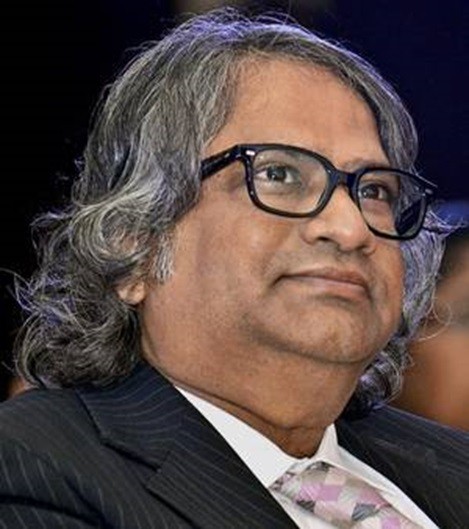Science and technology are vital to India’s development and rapidly growing economy. Considering its size, India doesn’t count many scientists in its population, and home-grown researchers often take positions elsewhere. To move from this ‘brain drain’ to ‘brain regain’, Harvard and Massachusetts Institute of Technology (MIT)-trained molecular biologist Krishnarao Appasani has returned (after three decades in the USA) to his home state to make real his vision of having three science cities in Andhra Pradesh, each aiming to attract young Indian people into science and provide opportunities for them to stay.
What is the inspiration for these science cities?

After the minister and I discussed science cities ‘from concept to execution’ over many meetings and presented to his secretaries, they recommended me to the chief minister of Andhra Pradesh, Nara Chandrababu Naidu. In June 2016, Naidu recruited me to head up the project under his stewardship. It will be a non-profit, government statutory autonomous body supported by the state and the central government. Alongside their funding, we will also raise money, and seek sponsorship from philanthropists, once we have a detailed masterplan.
How are the plans taking shape?
My vision is to develop the first science city infrastructure in India, creating a hub for science and technology in buildings designed by the world’s greatest architects. I am excited that the ‘science-centric and eco-centric’ masterplan will be developed by an architect who is a son and brother of Nobel laureates. I believe that Andhra Pradesh could be the leading region in India for science by 2025, which could boost India’s reputation worldwide. If successful, these science cities could extend across India.
The first science city will be in Tirupati, with a further two in Amaravati and Visakhapatnam. The structure will be similar across each: a science-promotion cluster with seven museums; an innovation cluster including research institutes and incubation centres in biomedical and physical sciences; and a science-dissemination cluster, with a convention centre and accommodation including around 300 bedrooms. The convention centre will initially house around 5,000 people, with potential to expand to 20,000. Its main role will be for scientific congresses, but it could also be used for large social gatherings and other celebrations, to generate revenue. All buildings will be created to high environmental and sustainability standards. I haven’t seen this model anywhere else in the world.
Why do seven museums feature in the designs?
Tirupati is home to the Tirumala Venkateswara Temple, one of the holiest Hindu pilgrimage sites, and has around 100,000 visitors every day. It is on the Seshachalam Hills, whose seven peaks are said to represent the seven heads of Adisesha. In honour of this, we are creating seven different museums around Tirupati, each designed by a different world-class architect representing a different country. Each museum will have a different focus: arts and sciences; air, space and defence; media; transport; human evolution and anthropology; rainforests and biodiversity; and a children’s museum and planetarium developed with an astrophysicist.
How are you involving the next generation?
In 2014, part of Andhra Pradesh was separated off to create Telangana state, which includes the capital Hyderabad, losing us a lot of scientific talent. Because of this, and the emigration of many scientists to the USA and Europe, we want to encourage and educate a new generation of young scientists. The many pilgrims to the temple in Tirupati include children and young people, and we hope that they will visit our museums, learn about science, and perhaps think about choosing science as a career. This includes supporting the education of girls and young women in science; we want to improve the gender ratio.
What is needed to make these dreams become reality?
Now that the concept is approved by government, the next step is to create the masterplan for the first science city, which we expect to complete within the next six months, and then we can start building. We aim to have this finished in the next five years.I would hope to have all three science cities up and running ten years from now. The timing for Amaravati and Visakhapatnam may depend on the political arena, as there will be assembly elections in Andhra Pradesh in April or May 2019, but I am confident that whichever party gets in, this project will continue to create the first ‘science ecosystem’ in the nation.

